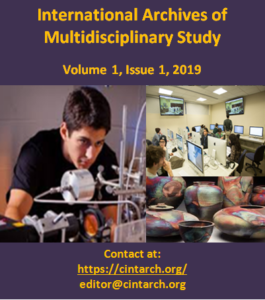
International Archives of Multidisciplinary Study (IAMS), Website: https://cintarch.com/iams-home/
September to October 2019 Vol 1(1): pp.8-12 DOI: https://doi.org/10.33515/iams/2019.025/20
Copyright © 2019 C-International Archives
Original Article
Analysis of tourists’ flow (2009-2018) in Kainji Lake National Park, Nigeria
Olanrewaju Olaoye1*, Olalekan A. Akande2, Kafilat A. Okunlola3, Awwal B. Adamu1
1Federal College of Wildlife Management, Forestry Research Institute of Nigeria, P.M.B. 268, New-Bussa, Nigeria
2Department of Zoology, Ahmadu Bello University, Zaria, Nigeria
3Department of Hospitality Management, Federal Polytechnic, Bida, Nigeria
*Corresponding Author’s Email: Akandehmd@gmail.com
Published November 23, 2019
ABSTRACT
This study was carried out to assess tourists’ flow and revenue generation from 2009 to 2018 in Kainji Lake National Park (KLNP). Data were collected from both primary and secondary sources. Primary data collection was carried out through the use of structured questionnaire. Secondary data were collected from the park’s records and reports. A simple random sampling technique was used to select representative samples from the staff population. Data collected were subjected to descriptive statistics using IBM SPSS statistical Package version 20. The findings show that majority of the respondents were males (87.0%), and were in the age group 31-40 years (55.0%). The season of patronage revealed that the dry season recorded the highest with 79.0% while the wet season recorded 11.0%. The trend of tourists’ patronage in the park shows a persistent decrease in their influx. The data for 2009-2018 revealed that year 2013 recorded the highest number of tourist with 7,730, followed by 2010 and 2011 with 6,103 each, while year 2014 recorded the least with 929. The total revenue generated was N23,019,455.32; year 2013 recorded the highest revenue with N4,294,061.87, followed by year 2015 with N3,481,967.52, while the least was year 2011 with N249,665.97. The study recommends that there is need to upgrade the facilities in the park to meet tourists’ needs and desires in order to improve patronage and revenue generation.

